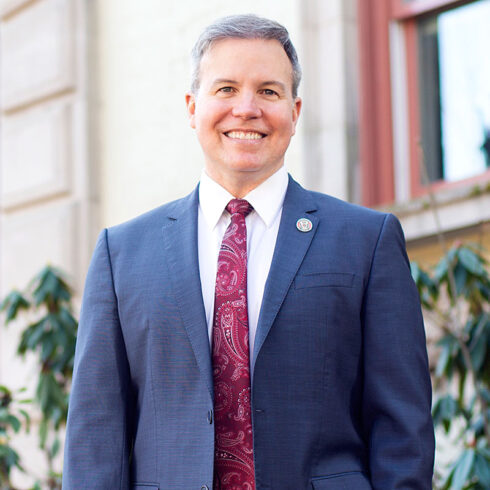Photo courtesy of ASSOU
2020-2021 has been a year of many changes for Southern Oregon University, least of which is the transitions of leadership that have taken place in the ASSOU. The turnover has caused some concern from students, with an emphasis on the state of the student budget and whether the inconsistency in leadership has slowed the process.
There have been three leadership transferalls since the beginning of the COVID-19 epidemic: from Sarah Grulikowski to Niko Hatch, from Niko Hatch to Andrew Zucker, and from Andrew Zucker to standing President Violet Crain. The former two presidents stepped down from the role for varying reasons, and the latter has since graduated from SOU.
In an interview on April 12th, Violet Crain commented on the ease of her transition from Vice President to President of the ASSOU. “Andrew Zucker knew he would be leaving…and something that was a goal of both of ours was that I would be able to transition as smoothly as I could. He was great, and he went above and beyond to prepare me for the position,” she explained, commenting on the working relationship between the two and their common goal of finishing the student budget. “[The transitions of power] gave me a really gradual path, and I was able to slowly work up to the workload I have now,” attributing the success to the merit of her predecessor.
When asked whether or not the earlier changes in leadership affected the working mechanisms of the student government, Crain assured students that it was handled in such a manner that it had no effect on the efficiency of ASSOU. Despite the rapid nature of the changes, it has not slowed down the student fee process or any decision making within the student government, evident in the approval of the budget in recent weeks.
Highlighting efficiency, President Crain spoke on the changes the student budget underwent in the wake of COVID-19. “ASSOU has actually cut their budget significantly. What that’ll do will either result in a restructure that’s being proposed, or everyone will just take a paycut,” noting the intention in doing so was to be able to give that budget back to various student groups, who have also faced tighter budgets during the pandemic.
Despite these changes, President Crain spoke on some of the big projects the student government plans to handle during this school year. “One of our biggest things was setting up communication between the branches to be better, and I think that’s something we’ve succeeded in pretty well. We’ve now got senators and directors working together, which is so cool.”
This seems to be an important step towards efficiency in the age of COVID-19, where ASSOU’s usually in-person meetings have been entirely virtual, with the added myriad of challenges created by the shelter-in-place restrictions. The trend of creating stronger communication continues to grow, as Crain also mentions the development of a Town Hall led by ASSOU, allowing more students to be participants within the governmental process.
As to whether there will be any more turnover in the ASSOU in the near future, President Crain does not foresee any more vacant seats. “To the best of my knowledge, we’re all going to be here until the end of year,” she said in parting, which is a comfortable assurance to students. In all, it seems the ASSOU has faced these changes head-on, with a steady goal of giving back to students and strengthening its connection to the student body.



